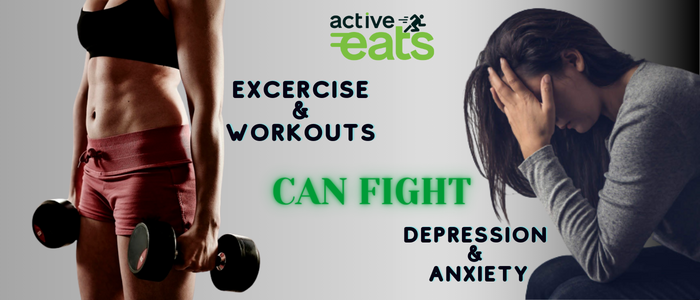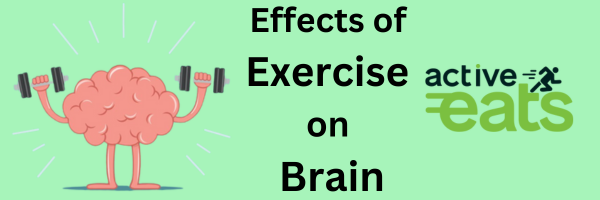Elevate Your Joy: The Profound Connection Between Exercise and Happiness Unveiled
Exercise and happiness are intertwined. Exercise works mainly for your body or physical health but can also very much serve your happiness and well-being. Exercise and workouts have been clinically proven to elevate levels of happiness. During physical activity, the brain releases endorphins-the feel-good chemicals which improve mood appropriately and trigger joy and satisfaction.
Moreover, exercise leads to a feeling of accomplishment, giving a further boost to self-esteem, and hence maximizes happiness. In this article, we will discuss how exercise produces happiness and thus helps with anxiety and depression, enhances mood, balances hormone levels, and works on the brain. Learning how one can pair exercise with happiness opens the doors to a happier and healthier life.
Finding Happiness with Exercise

Regular exercise creates a positive impact on happiness levels. Engaging in physical activity leads to increased levels of endorphins, which are known to improve mood and create feelings of happiness. Also, regular exercise gives a sense of accomplishment, which boosts self-estee,m resulting inan increase in overall happiness.
Engaging in physical activities that bring joy as well as improve fitness can also greatly enhance happiness levels. Regular exercise can serve as a form of therapy and provide an outlet for stress and negative emotions, leading to increased happiness.
The Role of Exercise in Fighting Anxiety and Depression

It is clinically proven that regular exercise can have a significant impact in reducing symptoms of anxiety and depression. Physical activity such a exercise stimulates the release of feel-good chemicals in the brain, such as serotonin, endorphins, adrenaline and dopamine, which can alleviate symptoms of anxiety and depression. Additionally, regular exercise can improve sleep patterns, reduce fatigue, and increase energy levels, all of which can help combat anxiety and depression.
Engaging in physical exercise can provide a distraction from negative thoughts and keeps the mind occupied with improving the health and fitness level of body leading to a more positive mindset, aiding in the management of anxiety and depression.

Exercise boosts self-confidence, which may promote social interaction and can help combat feelings of isolation and loneliness, which are often associated with anxiety and depression. This improved social interaction can lead to an increased sense of happiness.
How Exercise Can Lift Your Mood and Boost Happiness
Exercise increases blood flow in the body and improves oxygen levels to the brain, resulting in improved cognitive function and a more positive mood.
Engaging in physical activity stimulates the release of endorphins, which are natural mood lifters.
Regular exercise can boost self-confidence and promote a sense of accomplishment and capability, leading to an improved mood. Also, exercise can serve as a healthy outlet for stress and tension. Intense workout sessions can help create a more focused and positive mindset.
Additionally, physical activities and workout sessions provide a change in daily routines and responsibilities, allowing individuals to focus on themselves and their well-being, leading to an uplifted mood and energy levels.
Exercise and Hormone Balance: Exercise and happiness hormones
Regular exercise can help regulate various hormone levels, promoting overall chemical balance in the body.

Physical activity induces higher levels of endorphin production by the brain thereby inhibiting the perception of pain whilst augmenting the peacefulness of feeling. Stress hormones such as cortisol have, hence, undergone a decomposition via synthesis into a better hormonal balance.
Exercise and all its variant types make one feel accomplished and invoke the reward mechanism of the brain, which releases the hormone dopamine in the human body. In a span of time, the pathways of the reward system could be reconstructed owing to exercise such that the utilization of the hormone dopamine could properly respond more favorably therefore, it also enhances memories, makes you happy, and less prone to worries.
Exercise and workout programs can cause stronger blood flow to muscles. The result of this is the production and release of the hormone adrenaline or epinephrine from adrenal glands. These increase the concentration of oxygen dissolved in blood, ultimately spurring on maximal workouts. The increased adrenaline in the blood boosts confidence andthe feeling of being competent.
Exercise also improves the function of the endocrine system, which is responsible for the production and regulation of hormones in one’s body. Regular exercise also helps improve insulin action, makes sure blood sugar levels are stable, and probably achieves a better hormonal balance in the body.
The Effects of Exercise on the Brain

The impact of exercise is massive on the brain, enhancing cognition and perhaps diminishing the risk of diseases associated with aging, like dementia. Physical activities enhance the blood flow to and oxygen levels in the brain, which help stimulate the production of new brain cells and create new connection pathways between them. Regular workouts also have an established, positive influence on memory, attention, and mental clarity, contributing a great deal to the sense of happiness.
Physical exercise helps release neurotransmitters (dopamine and serotonin), which are vital for brain function as well as the maintenance of a good mood, hence going a long way toward uplifting and sustaining the overall mood, alleviating the symptoms of depression and anxiety, and improving general psychological wellness.
Conclusion
Just as there are innumerable benefits of exercise in the aspects of happiness and wellness, so there are also many things that come with the practice of physical activity. Physical activity takes place every day; the cause is the release of those hormones by the neurons in the spinal cord and the brainstem. Endorphins have a positive point but they don’t alone provide positive moods. Exercise is a way to form a plan for a sense of accomplishment and raises self-esteem. This contributes to happy living. Moreover, exercise also plays a big part in fighting anxiety and depression by producing beneficial hormones in the brain and allowing them to think positively. Hormones can also be balanced, all in all, leading to better health along with mood stabilization.
Exercise also helps, to a large extent, with stays in brain health; improves cognitive function, memory, and mental clarity. It decreases the possibilities of getting ailments that come with aging and also encourages the growth of new brain cells. Thus, exercise has much to do with physical health alone but equally plays an important role in achieving happiness and mental well-being.
Incorporating regular exercise into our lives, finding activities that bring pleasure as well as gratification activity would highly increase the happiness levels. So, let’s tie up our sneakers and put priority in exercise for a happier, healthier life!

